16 May2016
By Melvin Bogard
Ed Prep Matters is featuring “Stories of Impact” to showcase AACTE member institutions with educator preparation programs that are making a positive impact in their communities and beyond through innovative practices. We are committed to sharing members’ success stories and encourage you to do the same.
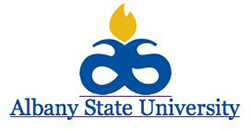 The clinical practice partnership between Georgia’s Albany State University (ASU) College of Education and nearby Live Oak Elementary is bringing mutual benefit to the elementary students and the ASU teacher candidates. The field-based preparation model they have cultivated around the school’s learning goals promotes growth for all involved.
The clinical practice partnership between Georgia’s Albany State University (ASU) College of Education and nearby Live Oak Elementary is bringing mutual benefit to the elementary students and the ASU teacher candidates. The field-based preparation model they have cultivated around the school’s learning goals promotes growth for all involved.
The hands-on assistance and dedication of the teacher candidates are helping to close literacy achievement gaps for Live Oak second-graders, for example, through the partners’ remedial reading practicum in the early childhood education program.
03 May2016
By Melvin Bogard
A new set of brief videos in AACTE’s Research-to-Practice Spotlight Series focuses on operationalizing clinical practice through the award-winning partnerships of Ohio University’s Patton College of Education (see this article introducing the series). Today’s article highlights messages from the first three videos, which feature leaders from the college as well as students, teachers, and administrators from several of its partner schools.
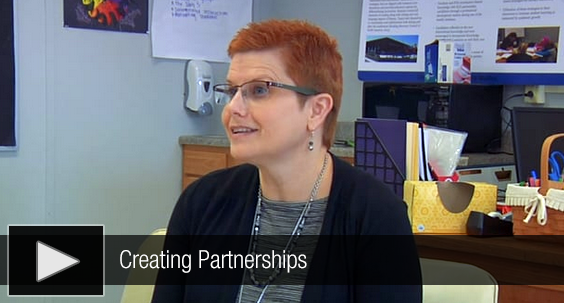
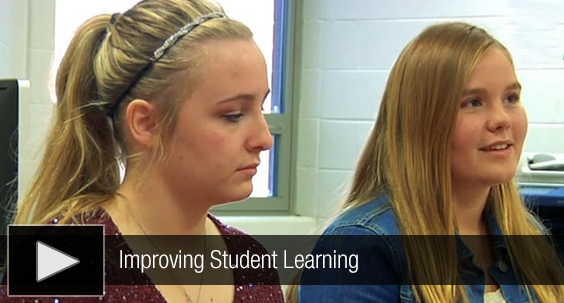
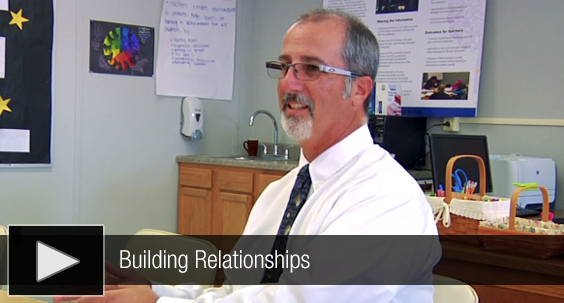
The Patton College of Education at Ohio University is building bridges for greater teaching and learning in a model that is a boon to PK-12 students, faculty, and teacher candidates. Its professional development school (PDS) partnerships employ a clinical model of education to provide hands-on experience for future educators while supporting their mentors and demonstrating educational benefit for the students as well.
26 Apr2016
By Amanda Lester
The AACTE Clinical Practice Commission (CPC) was launched in June 2015 with the goals of establishing a shared lexicon, identifying model protocols and best practices, and developing actionable recommendations for the field to define and align high-quality clinical practice in teacher preparation. The commission’s work is projected to extend through December 2016, but the 68th AACTE Annual Meeting held in February provided an opportunity to share the group’s work to date and gather feedback from the field.
During the conference, members of the CPC presented their vision for clinical practice, built upon a foundation of strong PK-24 partnerships and centered on transforming educator preparation by unifying the profession. Several commissioners provided insight into the CPC’s work as presenters during the preconference event “Preparing Tomorrow’s Leaders Through School-University Partnerships,” sponsored by the Wallace Foundation, and as featured panelists in the major forum “Clinical Practice in Educator Preparation.”
Three members of the CPC, Kristien Zenkov and Audra Parker from George Mason University (VA) and Rene Roselle from the University of Connecticut, spoke at the preconference event. Their presentation summarized the commission’s progress toward developing a white paper and a shared lexicon to connect the essential elements of clinical partnerships. They also discussed the common structures of clinical preparation and the implications that clinical teacher preparation has for advancing clinical practice in principal preparation.
18 Apr2016
By Rodrick Lucero
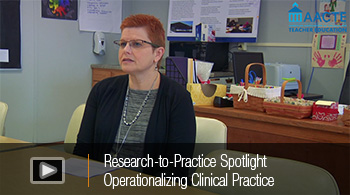 It is my pleasure to introduce the Patton College of Education at Ohio University as the next institution to be featured in AACTE’s Research-to-Practice Spotlight Series. Continuing our focus on effective models of clinical practice, this series highlights the award-winning work of Ohio University’s Patton College and its network of PK-12 partner schools to continuously improve their preparation of teachers in an active interchange of theory and practice.
It is my pleasure to introduce the Patton College of Education at Ohio University as the next institution to be featured in AACTE’s Research-to-Practice Spotlight Series. Continuing our focus on effective models of clinical practice, this series highlights the award-winning work of Ohio University’s Patton College and its network of PK-12 partner schools to continuously improve their preparation of teachers in an active interchange of theory and practice.
Over the next few weeks, we’ll be posting videos and blog articles to share what AACTE staff learned during our recent visit to picturesque Athens, Ohio, where we met with a broad selection of program leaders and participants. It was clear that the clinical practice model resonates with candidates, mentor teachers, PK-12 administrators, and those on the campus because those involved can see the benefits and have a clear understanding of the processes supporting them. The tone of this partnership is one of infinite possibility as all members of the community find themselves involved.
To help introduce this series, I invited Patton College Dean Renée Middleton to reflect on the program’s success and development. Here’s what she had to say:
12 Apr2016
By Whitney Watkins

Congratulations to April Holmes Scholar of the Month Shaywanna Harris!
Harris is a second-year doctoral student in the Counselor Education program at the University of Central Florida. Her research interests are traumatic childhood experiences, brain development in children, resilience in families, and neurofeedback training in counseling.
Harris is known for working collegially and collaboratively with diverse individuals across different organizations. As supervisor of a community counseling and research clinic at her university, she has demonstrated a commitment to successfully advocating for and valuing diversity. She also works with minority children of alcoholics by conducting research and disseminating information to the public through manuscript publications.
29 Mar2016
By David Fuentes, Kabba Colley and Sharon Leathers
In fall 2014, AACTE formed a networked improvement community (NIC) aimed at increasing the number of Black and Latino male teacher candidates in teacher preparation programs. Our College of Education at William Paterson University was among the 10 member colleges selected to participate. As we’ve worked in this collaborative group toward the goal of boosting enrollment of men of color by 25% across our programs, we’ve enjoyed a local impact that reaches well beyond the anticipated range.
The NIC employs the Carnegie Foundation for the Advancement of Teaching’s “improvement science” methodology to help participants examine our current practices and create new ones that will support the recruitment and retention of more diverse teacher candidates in our programs, and ultimately, their entrance into the teaching workforce.
08 Mar2016
By Melvin Bogard and Amanda Lester
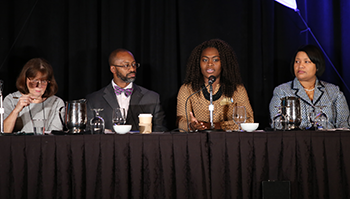
Holmes Scholar Whitney Watkins shares a student’s perspective during a major forum at the AACTE 68th Annual Meeting
Over the past few years, AACTE has been leading efforts to advance teacher diversity in the education workforce through the establishment of the AACTE Black and Hispanic/Latino Male Teachers Initiative Networked Improvement Community (NIC) and the expansion of the AACTE Holmes Program. Both initiatives are dedicated to increasing the recruitment and retention of educators from historically underrepresented groups into the education profession. The NIC’s work is identifying and testing strategies to increase the recruitment and retention of Black, Hispanic, and Latino males in the teaching workforce, and the Holmes Program supports aspiring educators at various points in their education careers to enter teaching, administration, policy, and the professoriate.
01 Mar2016
By Zachary VanHouten
Just a few days remain to apply for the 2016 Holocaust Institute for Teacher Educators (HITE), a week-long, all-expenses-paid professional development opportunity in June at the U.S. Holocaust Memorial Museum in Washington, DC. Applications close Friday, March 4!
AACTE member faculty are invited to apply through our online application. For more information, read this article or contact me at zvanhouten@aacte.org.
10 Feb2016
By Zachary VanHouten
You still have time to apply for the 2016 Holocaust Institute for Teacher Educators (HITE), a week-long, all-expenses-paid professional development opportunity in June at the U.S. Holocaust Memorial Museum in Washington, DC. The deadline for applications has been extended until March 4!
AACTE member faculty are invited to apply through our online application. For more information, read this article or contact me at zvanhouten@aacte.org.
Be sure to also stop by the HITE concurrent session at AACTE’s 68th Annual Meeting in Las Vegas! The session (Education Under the Third Reich: A Case Study for the Ethics of Teaching) is scheduled for Thursday, February 25, at 10:30 a.m. in Grand Ballroom E. Add the session to your personal schedule through our Online Event Planner.
26 Jan2016
By Zachary VanHouten
Now is the time to apply for the 2016 Holocaust Institute for Teacher Educators (HITE), a week-long, all-expenses-paid professional development opportunity in Washington, DC, in June. Applications are due February 15!
This year, for the first time, the event is open to interested faculty members from any AACTE member institution. HITE is supported by a long-standing partnership between the U.S. Holocaust Memorial Museum and AACTE. If you or a colleague is interested in applying, don’t delay—complete your application today!
19 Jan2016
By Jerrica Thurman
 Last month, AACTE concluded its two-part online series on the Common Core State Standards (CCSS) with a webinar discussing preparation of preservice teachers for CCSS in mathematics. The webinar highlighted ways to engage candidates in thinking mathematically, figuring things out the way their PK-12 students will need to do, and using mathematics in context to better assist students in their learning.
Last month, AACTE concluded its two-part online series on the Common Core State Standards (CCSS) with a webinar discussing preparation of preservice teachers for CCSS in mathematics. The webinar highlighted ways to engage candidates in thinking mathematically, figuring things out the way their PK-12 students will need to do, and using mathematics in context to better assist students in their learning.
The webinar, “Preparing Teacher Candidates for Common Core State Standards in Mathematics: The Sequel,” was presented December 15 by Reuben Asempapa from Ohio University along with Fran Arbaugh from Penn State University and Cynthia Vavasseur from Nicholls State University, and moderated by AACTE Senior Director Linda McKee. They discussed strategies for program leaders to work on their campuses to educate mathematicians and mathematics educators about the CCSS in mathematics and to bring them together to effectively prepare future teachers:
04 Dec2015
By Sharon Robinson

Today, USA Today published a special centerfold feature on literacy in America, accompanied by a digital campaign by Mediaplanet. I was pleased to have the opportunity to author a piece for the campaign, published as “Expanding Literacy Beyond Language Arts.” In the article I describe work that colleges of education are doing to boost literacy among America’s PK-12 students. The 275 words available in USA Today scarcely begin to tell this story, but the message is an important one to get out. Here are a few additional words I’d like to share.
Literacy has become a keystone for all other learning, particularly because of our changing expectations around assessment. Beginning with the requirements of the No Child Left Behind Act and evolving into today’s college- and career-ready standards such as the Common Core and Next Generation Science Standards, students now must show competence in all disciplines via writing, speaking, and critical thinking.
17 Nov2015
By Christine DeGregory
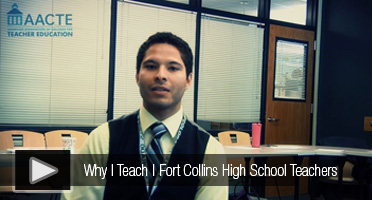
If you have been inspired by the previous Research-to-Practice Spotlight videos featuring the robust partnership between Colorado State University (CSU) and the Poudre School District (PSD) in Fort Collins, don’t miss the final mini-installment in the series, in which various teachers at Fort Collins High School share their passion for teaching. Below, Christine DeGregory reflects on what she witnessed during her visit with the partners last spring.
I’m a firm believer in the power of clinical practice—particularly clinical practice supported by a professional development school model. I had heard many wonderful things about the special partnership that Colorado State University (CSU) had nurtured with the Poudre School District (PSD), but having the opportunity to talk to partnership members and see their work in action reaffirmed to me that some common approaches to clinical practice can be successfully reimagined.
10 Nov2015
By Hannah Maes

The AACTE Holmes Program recently welcomed nine new participating institutions, joining dozens of other educator preparation programs across the country that are providing targeted support to historically underrepresented students in education.
The following institutions signed up this fall to participate in the program, signifying their commitment to diversifying the teacher workforce:
10 Nov2015
By Amanda Lester and Omar Davis
Please join AACTE November 17 for a free webinar highlighting three AACTE member and partner initiatives that are developing strategies and action to increase diversity in the teaching workforce.
A recent report by the Albert Shanker Institute, The State of Teacher Diversity in American Education, identifies teacher diversity in our nation’s schools as “an educational civil right for students” that is not adequately represented in the current educator workforce. In AACTE’s webinar, “Advancing Diversity in the Teaching Workforce: Three Initiatives Working Toward Solutions,” participants in three initiatives will “tell the story” of their work, providing the background for their initiative, the key issues and challenges they are addressing, and the progress they have made to identify solutions.
 The clinical practice partnership between Georgia’s Albany State University (ASU) College of Education and nearby Live Oak Elementary is bringing mutual benefit to the elementary students and the ASU teacher candidates. The field-based preparation model they have cultivated around the school’s learning goals promotes growth for all involved.
The clinical practice partnership between Georgia’s Albany State University (ASU) College of Education and nearby Live Oak Elementary is bringing mutual benefit to the elementary students and the ASU teacher candidates. The field-based preparation model they have cultivated around the school’s learning goals promotes growth for all involved. 












 Last month, AACTE concluded its two-part online series on the Common Core State Standards (CCSS) with a webinar discussing preparation of preservice teachers for CCSS in mathematics. The webinar highlighted ways to engage candidates in thinking mathematically, figuring things out the way their PK-12 students will need to do, and using mathematics in context to better assist students in their learning.
Last month, AACTE concluded its two-part online series on the Common Core State Standards (CCSS) with a webinar discussing preparation of preservice teachers for CCSS in mathematics. The webinar highlighted ways to engage candidates in thinking mathematically, figuring things out the way their PK-12 students will need to do, and using mathematics in context to better assist students in their learning.

